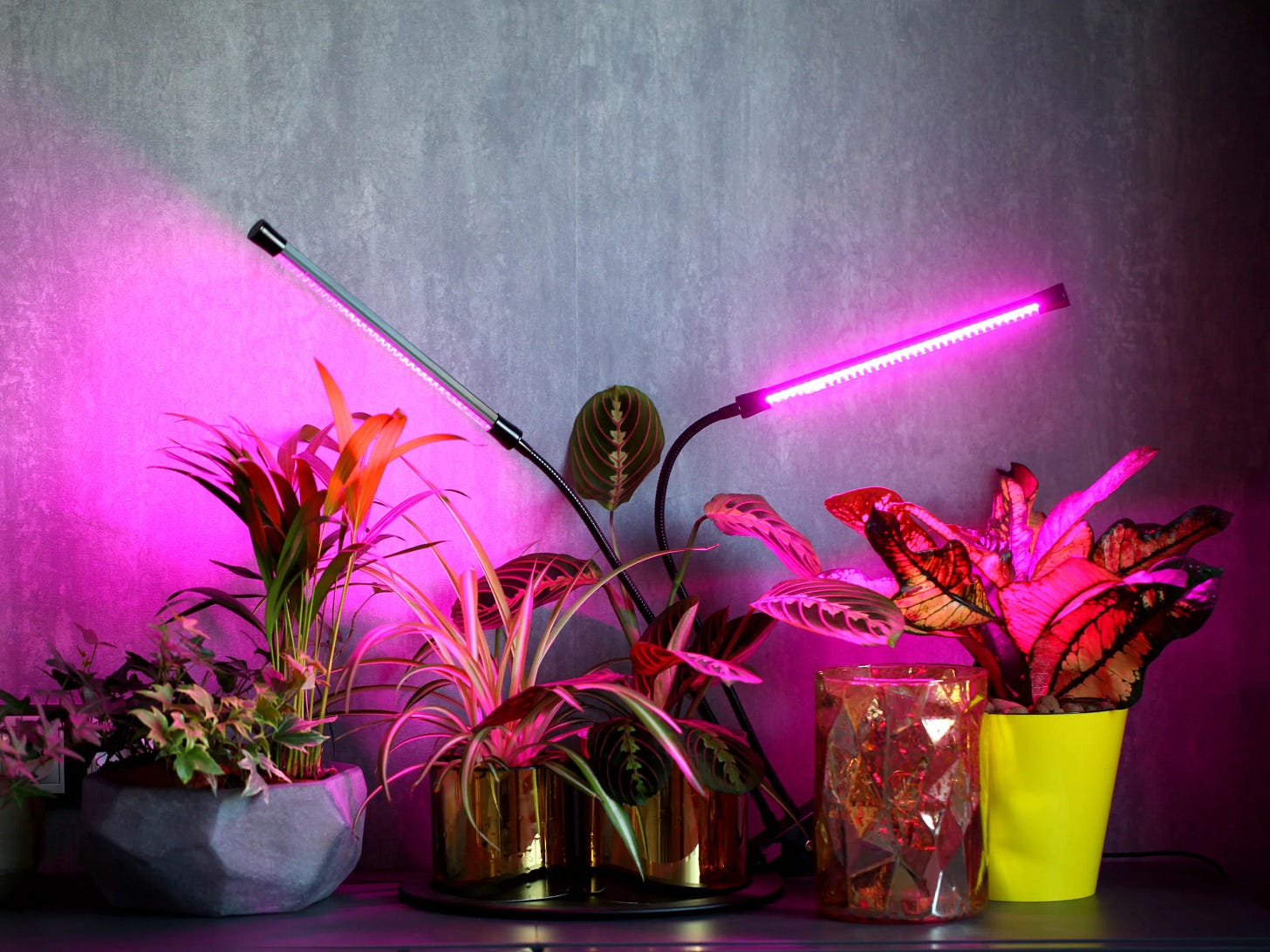How technology will take care of your plants when you're away
Heading out for a much-needed vacation but feeling guilty about leaving your plant babies behind? Say goodbye to plant anxiety and hello to stress-free travels!
Welcome to the latest edition of This Is Horticulture, the newsletter about Art, Science, Technology and Business of plant cultivation. In this edition, we'll be discussing how to take care of your plants when you're away on holiday, using the latest technology and imagining the future of plant care.
At the intersection of technology and nature lies a world of infinite possibilities. The art and business of plant cultivation is no exception, as advancements in smart self-watering systems and real-time monitoring are already shaping the way we nurture our green companions. But the potential for innovation goes even further. Imagine a future where plants are watered using moisture from the air, powered by the very energy of artificial photosynthesis, and cared for by robotic plant sitters that use artificial intelligence to optimize their environment. This may seem like science fiction but, with the right mix of creativity and technology, the future of plant care is within our reach.
Watering: While smart self-watering systems are already in use, there could be a future solution where plants are watered using moisture from the air, similar to how some desert plants survive in dry environments. This technology is currently being developed for use in arid regions and could potentially be adapted for plant care.
Lighting: In the future, we could see plant care technology that harnesses the power of artificial photosynthesis, which uses light to generate energy and promote plant growth. This technology is still in the experimental stages, but could eventually be used to help plants thrive even in low-light environments.

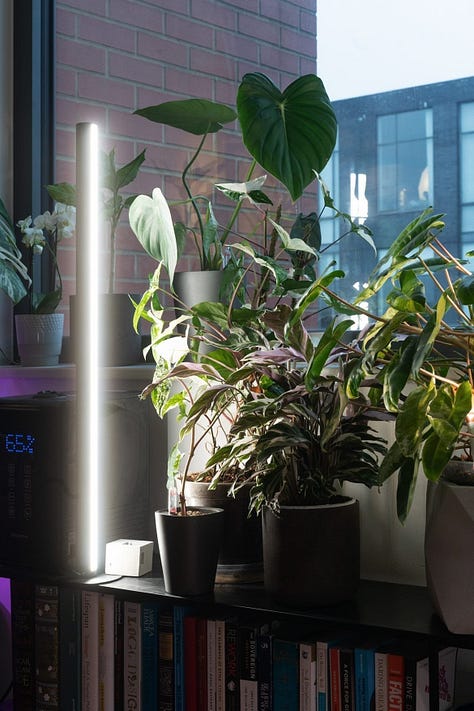
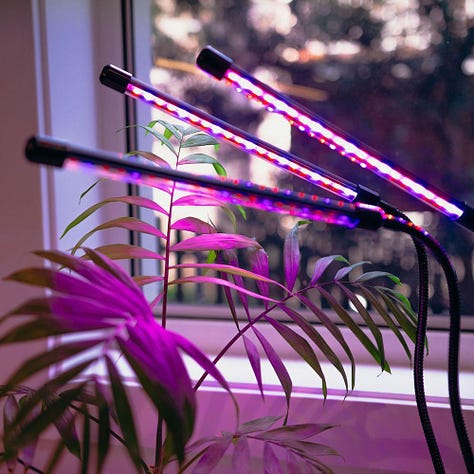

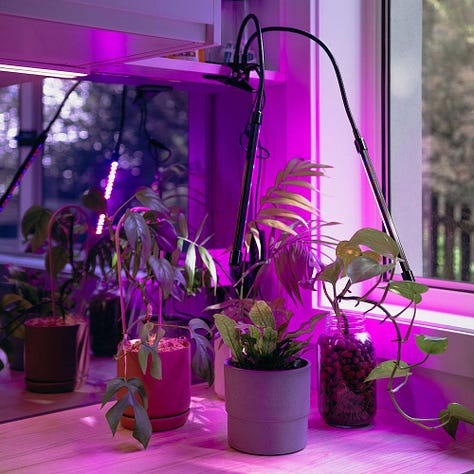
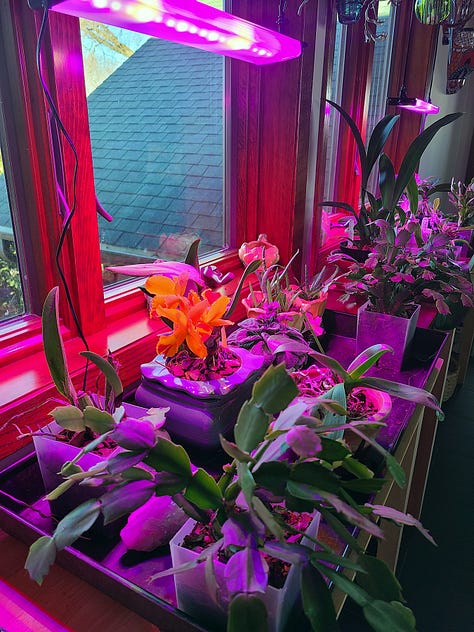

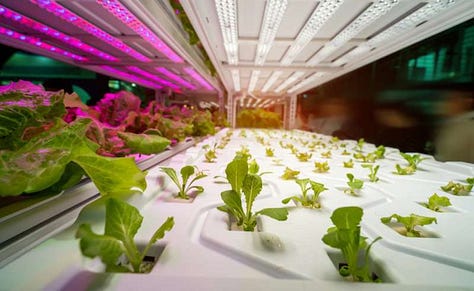
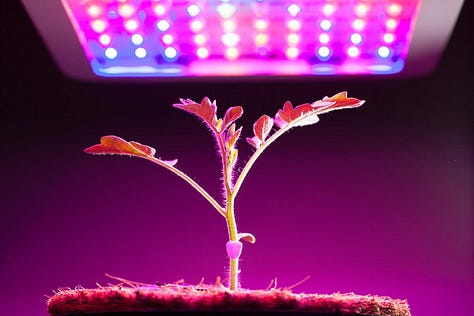
The possibilities of using LEDs to enhance plant growth Monitoring: One exciting development in plant care technology is the use of sensors that can detect changes in a plant's health and provide real-time feedback to growers. For example, researchers at MIT are currently developing plant nanobionics, a technology that embeds tiny sensors into plant leaves to monitor nutrient levels and detect early signs of stress or disease.
Hiring a plant sitter: While hiring a human plant sitter may be the best option for now, in the future we could see the development of robotic plant sitters that use artificial intelligence to provide optimal care for plants. These robots could monitor the plant's environment, adjust watering and lighting, and even perform tasks like pruning or repotting.
As I explore the latest developments in plant care technology, it's important to approach the topic with a critical mind and seek out information from a variety of reliable sources. In this spirit, I've compiled a list of companies at the forefront of different those four fields in plant care technology. These companies are pushing the boundaries of what's possible in the world of plant growth from politics to pleasure. By examining their innovative products and services, you can gain a deeper understanding of the exciting future that awaits us.
💦 Watering:
Rachio is a company that specializes in smart sprinkler systems for house gardens. Their sprinkler controllers use advanced weather data and real-time moisture sensors to adjust watering schedules and conserve water while keeping plants healthy. With Rachio, users can remotely monitor and control their sprinkler system through a smartphone app, making it easy to manage plant watering even when away from home.
💡Lighting:
Fluence is a company that provides advanced LED lighting systems for horticulture. The company's lighting systems are designed to provide the precise spectrum and intensity of light that plants need for optimal growth and development. Fluence's products are used by commercial growers, researchers, and other professionals in the industry. Learn more at
🖥️ Monitoring:
Krado is a company that specializes in plant monitoring devices. They offer a range of sensors and tools that can be used to monitor the health and growth of plants, including temperature, humidity, light and soil moisture sensors. The Krado plant sensor is a small device that can be inserted into the soil of a potted plant, providing real-time data about the plant's health and growth. The sensor connects to a mobile app that allows users to monitor their plants remotely, receive alerts when the plant needs water or other care, and track the plant's growth over time.
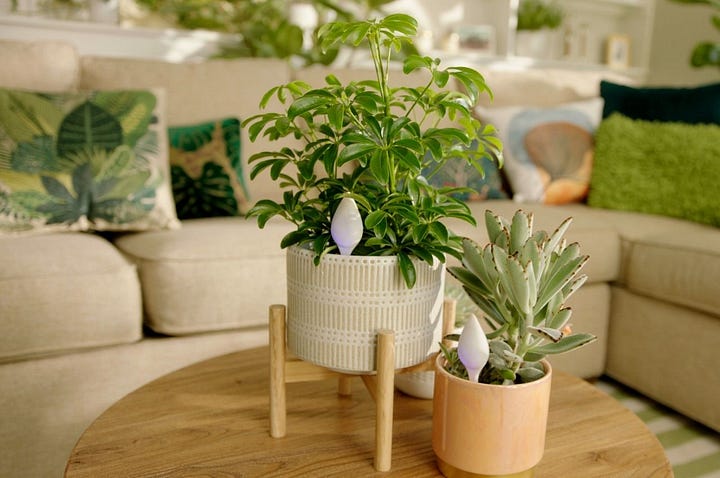
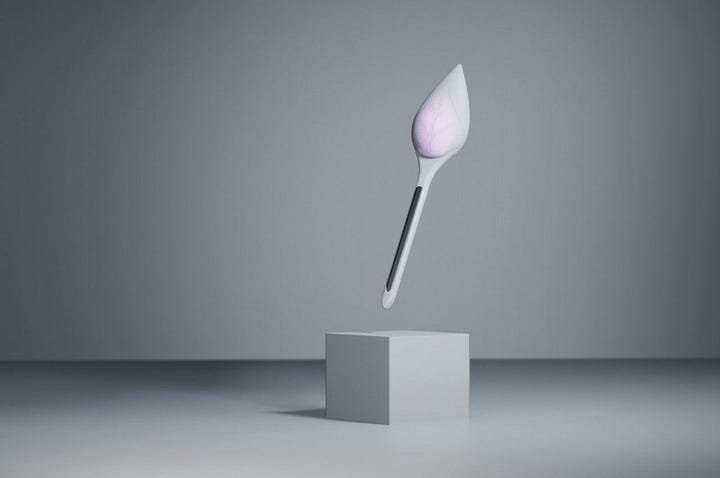
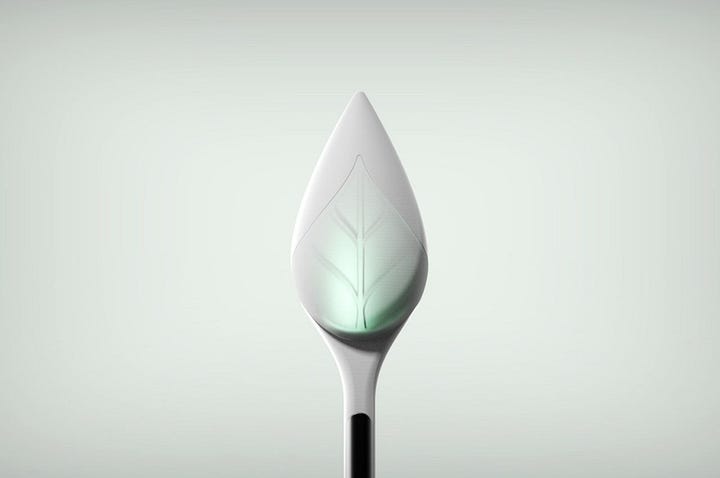
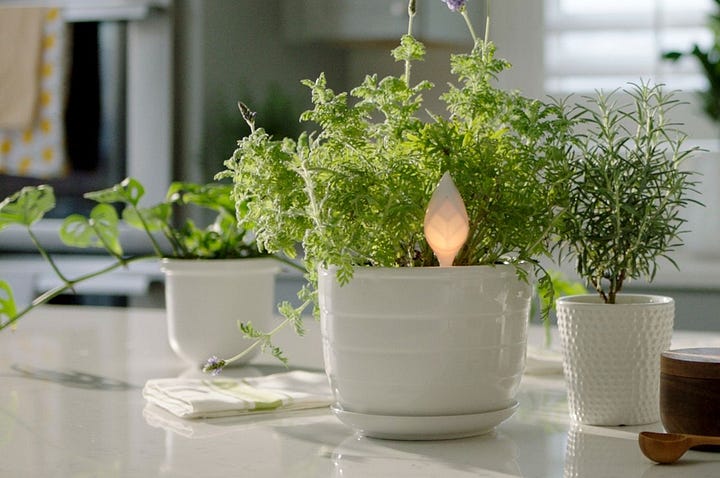
Krado's device
❤️ Hiring a plant sitter:
Tertill is a company that has developed a solar-powered robot designed to weed gardens. The robot is equipped with sensors that allow it to navigate through a garden, avoiding plants and obstacles, while identifying and removing weeds. The Tertill robot is designed to be a sustainable and eco-friendly solution for home gardeners, eliminating the need for harmful chemicals and manual labor. The company was founded by a team of roboticists and engineers and is based in Boston, Massachusetts.
I hope these ideas have sparked your imagination and inspired you to think about the future of plant care technology. As always, I'd love to hear your feedback on this straigh-forward newsletter format and any other suggestions you may have.
Happy gardening (and dreaming)!
Murnau Den Linden




